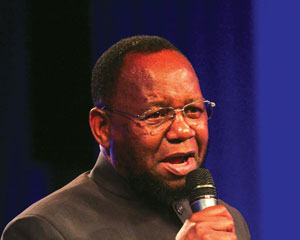
TEACHERS’ unions in the country must join forces in their demand for better salaries and working conditions, a Zimbabwe Teachers’ Association (Zimta) official said yesterday.
BY PHYLLIS MBANJE
This comes after Zimta proposed about US$1 000 salary for a teacher, while the Progressive Teachers Unions says it wants a figure matching the Poverty Datum Line (PDL), currently pegged at US$550.
Speaking during the commemorations of the World Teachers’ Day in Harare yesterday, Zimta president, Richard Gundane said the effectiveness of the labour movements at the negotiating table were being weathered by the proliferation of unions, which seemed divided over a number of issues.
“When you have 13 unions all claiming to represent civil servants then you know trade union movement is under threat,” said Gundane. “The strength of organised labour is unity.”
The call for unity calls at a time teachers are fighting for better salaries and working conditions.
Zimta defended their salary proposal of US$1000, saying they were professionals who deserved to be paid better.
“Our point is to raise the standard of teachers who for a long time have been the butt of everyone’s joke.
- Chamisa under fire over US$120K donation
- Mavhunga puts DeMbare into Chibuku quarterfinals
- Pension funds bet on Cabora Bassa oilfields
- Councils defy govt fire tender directive
Keep Reading
“Long ago they used to be highly esteemed, and that is the glory that we want to bring back,” Gundane said.
He said the lowest teacher who currently earned US$230, should be paid US$690 excluding allowances, Zimta said.
“Our estimates and argument is that a reasonably remunerated teacher should be pegged at US$988. This way the nation will be attaching value to the teacher,” he said.
Gundane called on all teachers with “vocation” for teaching to join hands with Zimta, taking a swipe at those who formed unions out of “greed and irresponsibility”.
“If the multiplication of trade unions in this country is a sign of liberalism and diversity, then these should be used as drivers for qualitative change in the lives of workers,” he said.
Primary and Secondary Education minister Lazarus Dokora, who was the guest of honour at the Zimta function, also called on unions to unite when making their demands, as well as when celebrating events like the World Teachers Day.
“If only for one day these unions would celebrate such events under one roof and set aside their differences,” he said.
Speaking at a different venue PTUZ secretary-general, Raymond Majongwe said they did not care who chose to join them or not, as they were not worried about numbers.
“It is not our business to be where the ‘crowds’ are, our mandate is to ensure that the welfare of those that we represent are served,” said Majongwe.
“We will continue to highlight the plight of the rural teacher who lives in a mud and daga hut somewhere in the jungle.”
Majongwe added: “Every Sunday people worship but at different places of worship,” Majongwe said government should expedite the process of addressing pertinent issues that affected the ordinary teacher like housing and allowances.
“The rural teacher should get his hardship allowance, and every teacher should be given an opportunity to purchase land and build a house,” he said.
However, both Zimta and PTUZ had common challenges they wanted addressed by the government such as housing, infrastructure and transport allowances.
They also expressed keen interest in benefitting from the government’s indigenisation programme as teachers.










